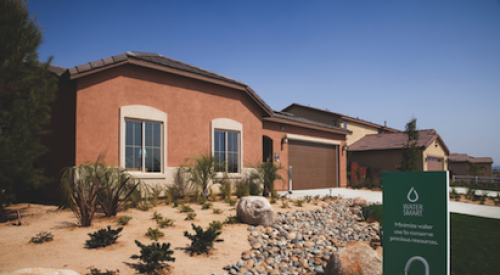|
Johnston's green office in Boulder, Colo., conserves energy and resources with drought-tolerant plants, minimal lawn space and other techniques known as Xeriscaping.
|
Landscaping can have a huge effect on the energy efficiency and comfort of a home, says consultant David Johnston, president of What's Working, based in Boulder, Colo. Smart planning and planting can take advantage of sun, shade and wind to make a home more comfortable, reduce heating/cooling loads and even lower indoor temperatures as much as 10 degrees. Even when a builder can't change lot orientation for passive solar heating/cooling benefits, deciduous trees can buffer overheating of southern elevations or block the low summer sun to the east and west.
Johnston also advises builders to steer clear of alien species and landscape using indigenous drought resistant grasses, bushes and flowering plants. "In many parts of the country up to 60 percent of treated, potable water is used for landscaping. When excavating, preserve that very thin, very fertile layer of topsoil," says Johnston, "and bring it back for landscaping to keep the bacteria and biology of the soil intact."











